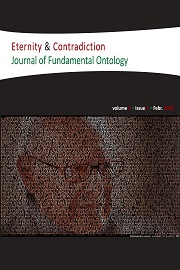Who is afraid of contradictions? A general introduction to the debate between Severino and Priest
DOI:
https://doi.org/10.7346/e&c-022020-02Abstract
This paper is divided in two parts. In the first, I sketch the debate between Priest and Severino on the principle of non-contradiction (henceforth PNC) and its defence. I explain what the challenge to PNC amounts to, by distinguishing paraconsistency from dialetheism. Later I will dwell on Severino’s broad conception of PNC integrating the laws of identity and of noncontradiction into a more basic law that can be dubbed the principle of ontic determinacy. A crucial point in the dispute is the conception of negation, that is, whether or not the PNC denier, while claiming a dialetheia, must avail herself of the exclusive negation, despite her intentions. If so, the charge is not so much of inconsistency but of holding a self-undermining position as any proposition affirming a dialetheia would be grounded on PNC itself.
In the second part, I propose a mild interpretation of dialetheisms. By considering some reasons supporting it, I suggest that it is motivated by the view that reality is over-determinate, rather than in-determinate (as it would happen, according to Aristotle and Severino, if PNC turned out to be false), and by the fact that the conceptual, linguistic expression of this overdetermination leads to contradictions. A dialetheia is, as it were, a two-footed creature whose being simultaneously both true and false is grounded upon two (or more) different facts. These are mutually conflicting and thus play the roles of, respectively, verifying and falsifying the very same proposition. The existence of these facts, however, must be an univocal datum also for a dialetheia. If so, dialetheism does not jeopardize the view that reality, at least at its most fundamental level, is absolutely determined – just as Aristotle and Severino claim.


